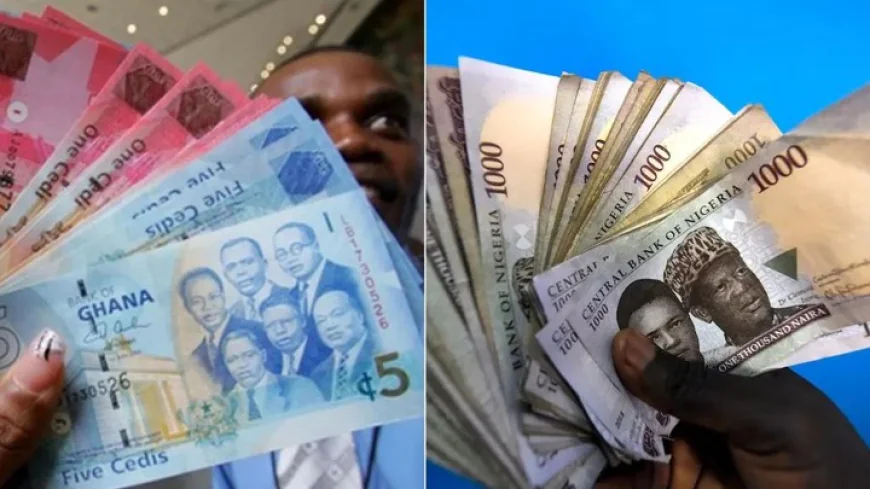Cedi to Naira Exchange Rate Hits ₦149.79 – ₦155.27 in June 2025 Amid Economic Shifts
As of June 2025, ₵1 equals ₦149.79–₦155.27 depending on market rates. Inflation, trade, and central bank policies shape the cedi-naira exchange dynamics.

As of June 2025, the exchange rate between the Ghanaian cedi (GHS) and Nigerian naira (NGN) stands at approximately ₦149.79 per ₵1, with variations as high as ₦151.04 to ₦155.27 per ₵1, depending on forex bureaus and market platforms. This dynamic exchange rate reflects ongoing economic pressures and trade shifts between Ghana and Nigeria.
Factors Driving the Cedi-Naira Exchange Rate
Trade Imbalances – Ghana and Nigeria maintain strong trade relations, but differing export-import dynamics influence currency demand.
Inflationary Pressures – Ghana’s inflation eased to 19.8% in May, while Nigeria continues facing consumer price challenges, affecting currency stability.
Central Bank Policies – The Bank of Ghana (BoG) and Central Bank of Nigeria (CBN) implement monetary measures to manage exchange rate volatility.
Foreign Reserves & Dollar Demand – Both nations rely on dollar reserves, affecting the performance of the cedi and naira against major currencies.
For businesses and consumers in both countries, the exchange rate has notable effects:
Trade Costs – Ghanaian exporters to Nigeria benefit from a stronger cedi, but imports from Nigeria become more expensive.
Cross-Border Transactions – Companies with operations in both nations must adjust pricing strategies based on exchange fluctuations.
Investment Sentiment – Stability in the cedi-naira rate impacts investor confidence, influencing capital flows between Ghana and Nigeria.
Analysts predict that continued monetary interventions and macroeconomic policies will determine the cedi-naira exchange rate trajectory. With Nigeria pushing structural reforms and Ghana managing inflation trends, market movements could shift toward gradual stabilization or further volatility.


